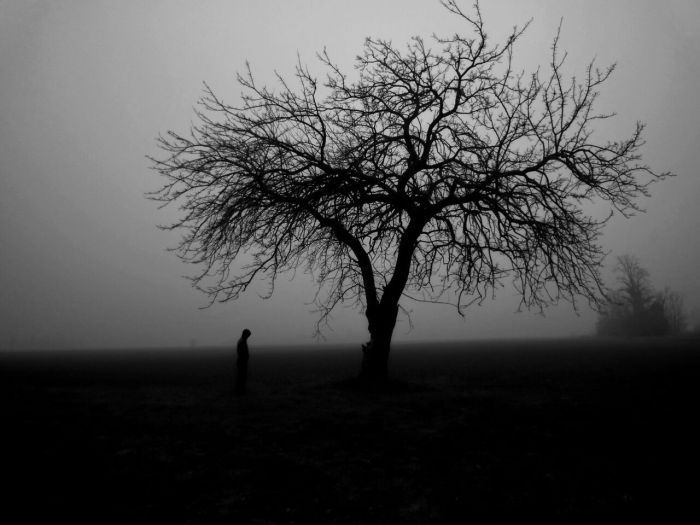On a walk after a much needed meditation during a break between storms, a fellow about my age stopped and asked me where all the goats came from in the parkland. I replied they contract them out every few years to clear away the undergrowth, like poison oak and invasive species such as thistle weed.
He was holding a fat joint, and said he thought by first impression that I’d understand. I did, though he didn’t take a toke the ten-plus minutes we talked, just held the lit joint like a cigarette between his fingers. He had been living in the small tent city next to Walmart, from where he fixed engines following the Camp Fire with his own tools. (The field has just been cleared, fenced and covered from view.)
He began describing incidents that had taken place there, things that only someone living in those conditions would know, which of course the local news hasn’t reported. “One woman lost her husband and home in the fire,” he said, “and some meth-head slit her tent open and stole all her things.”
 He had a special antipathy toward ‘meth-heads,’ and said he could spot them right away, because “they’re wild-eyed and crazy acting.” Though high on cannabis himself, he was coherent and clear. “Just go and observe,” he said, “you’ll see a lot.”
He had a special antipathy toward ‘meth-heads,’ and said he could spot them right away, because “they’re wild-eyed and crazy acting.” Though high on cannabis himself, he was coherent and clear. “Just go and observe,” he said, “you’ll see a lot.”
We introduced ourselves, shook hands, and continued on our way. “Good luck,” I said in parting. “Skill,” he replied.
Compassion is not a feel-good emotion. In fact, it’s not an emotion at all. Compassion can and often is painful. For a moment one feels what it’s actually like to walk in the other person’s shoes, and there often is immense sorrow in it.
There’s much talk of compassion these days. Most of it is hollow, meant to convey a morally superior attitude in those who casually throw around the word. The idea of compassion acts as a patina over unfelt suffering, and a panacea for the sorrow one doesn’t want to go near. Actual compassion is not an attitude one bestows on the less fortunate, or those we comparatively believe are suffering more than we are.
Compassion, like love, flows from affection for every living thing on Earth. It is no more something one consciously confers and wills than breathing. A truly compassionate person doesn’t know it.
Then what brings compassion? And what is its relationship to sorrow?
Once, after hiking all day with a group of friends in the high desert of southern California, we came to stream at the end of our strenuous day hike, less than a mile from where the cars were parked.
In those days you could drink directly from most mountain streams, and I was passing cupfuls of water to my friends. Suddenly the beauty of the day overtook me, and I couldn’t move. Literally couldn’t move. I was handing a cup of water to one of the fellows, and became frozen like a statue.
I was looking upstream, and you could see for some distance at that spot. Just then I felt something flowing above the full-flowing stream, and knew when it reached me something strong would happen.
When it reached me I burst into tears. I had never cried before a guy before in my life, and here I was sobbing in front of half a dozen 20-somethings my age, plus one older fellow. I ran down the bank and shook until one of the friends brought me a few slices of orange, which made me laugh and snapped me out of it.
before in my life, and here I was sobbing in front of half a dozen 20-somethings my age, plus one older fellow. I ran down the bank and shook until one of the friends brought me a few slices of orange, which made me laugh and snapped me out of it.
The older fellow who had hiked with us asked what happened to me at the stream. I thought he meant the river of sorrow, but he meant the 15 or 20 seconds when I was unable to move.
I said that had happened a few times before when the beauty of nature overwhelmed me, so I didn’t make too much of it. I wanted to know what that river of sorrow was, which had nothing to do with me personally.
“That’s just collective human sorrow,” he said, and asked me some more about the frozen state. “The Greeks had a name for it,” he said, “they called it ‘aesthetic stasis.’ It’s quite rare.”
As I’ve grown older, ‘aesthetic stasis” is less frequent, but it still occurs sometimes. I understand now why my older friend was focused on it, since it reflects the highest spiritual state a human being can experience.
I know sorrow much better as well, both personal and collective, as most of us do now, though can’t say I understand it and have gone beyond it.
Sorrow is the emotional residue of suffering, but compassion is a living state, a quality of being free of suffering. Now I’m asking, can sorrow be transmuted into compassion?
Martin LeFevre

